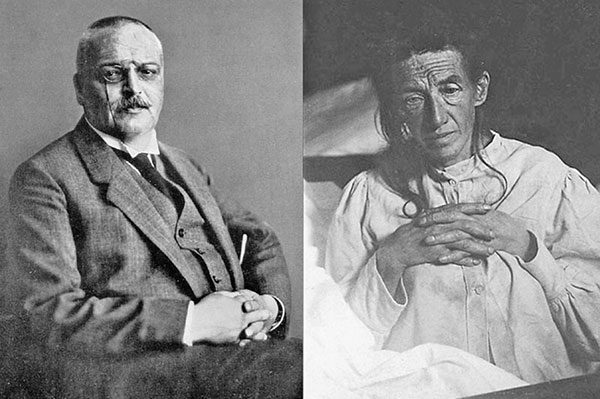More than a decade after the landmark FINGER trial, Dr. Miia Kivipelto pushes dementia prevention further.
Eleven years after Dr. Miia Kivipelto’s landmark FINGER trial demonstrated that lifestyle changes can help protect the brain, researchers continue to discover how the program interacts with genetics and metabolism — and whether it could work alongside anti-amyloid antibodies and other medications.
“I am very optimistic for the future,” Kivipelto, a professor of clinical geriatrics at the Karolinksa Institute, Sweden, said in a presentation at the AD/PD 2025 conference. “We have shown that multidomain interventions are effective and feasible. Now we are moving to precision prevention, optimizing and adapting FINGER for different target populations.”
The original FINGER (Finnish Geriatric Intervention Study to Prevent Cognitive Impairment and Disability) trial showed that a combination of diet, exercise, brain training, social interaction, and cardiovascular risk factor management reduced the risk of cognitive decline by 30 percent compared to a control group. Participants also experienced significant gains: a 25-percent improvement in global cognition, an 85-percent improvement in executive function, a 40-percent improvement in memory, and a 150-percent improvement in cognitive processing speed.
But according to Kivipelto, brain health wasn’t the only benefit. FINGER participants were 20 percent less likely to experience cardiovascular events; 60 percent less likely to develop chronic diseases, and 30 percent less likely to see functional decline. FINGER was a money-saver too, according to a 2024 study. Participants had better health-related quality of life, fewer hospital admissions, and saved an average of €4,000 euros on healthcare costs over the study period.
Studies continue to confirm the links between lifestyle and dementia risk, further emphasizing the importance of programs like FINGER. Just last year, the Lancet Commission on Dementia determined that modifiable lifestyle factors account for 49 percent of dementia cases worldwide. These include lifestyle factors (like diet and exercise), vascular factors (like high cholesterol), metabolic factors (like diabetes), and environmental risk factors that pile up over an entire life.
Another benefit of lifestyle modification programs, like FINGER, is that they don’t require prescription medicines, expensive supplements, or even a gym membership – just personal commitment. An everyday-life model of the FINGER program might include daily walking with strength training several times a week; a diet featuring lean protein, vegetables and fruit; mental stimulation (reading, learning something new, or enjoying challenging puzzles); staying active with your family or social circle; and keeping an eye on your weight, blood pressure, cholesterol, and blood sugar.
How FINGER interacts with genetic risk factors like APOE4
With that in mind, Kivipelto and her colleagues are exploring how FINGER interacts with risks that can’t be changed, like age, sex, and genetics — particularly the high-risk apolipoprotein e4 gene (ApoE4), which dramatically increases the risk of developing Alzheimer’s in people who carry two copies of it.
Kivipelto’s unpublished meta-analysis of FINGER plus two similar lifestyle modification studies have now confirmed that ApoE4 carriers get bigger benefits from the intervention than those without the gene. She said she will share the details during this summer’s Alzheimer’s Association International Conference.
“I think this is a very important finding, since we already know that ApoE4 carriers are more prone to serious side effects from the new anti-amyloid treatments,” she said. “The key is to get the right treatment to the right person at the right time.”
Genetic status isn’t the only characteristic that might make a person unable to take these new anti-amyloid therapies, including Leqembi and Kisunla: Anticoagulant medicines, clot-busting drugs, prior strokes, and a number of other factors could also disqualify someone. In fact, Kivipelto said, only about 10 percent of the people she sees in her clinic qualify for the antibodies. For everyone else, lifestyle-based programs like FINGER might provide another option.
FINGER + anti-amyloids? Cue the FINGER-MET trial
Kivipelto sees potential for FINGER and similar programs to work synergistically with approved Alzheimer’s drugs, or with medications that impact other processes that influence the disease, like metabolic conditions, inflammation, and cardiovascular health. A newly launched trial, FINGER-MET, is the first to look at this potential: It will examine the effect of the FINGER intervention plus metformin.
Metformin helps regulate blood sugar, and is often prescribed for type 2 diabetes – which, in turn, increases the risk for Alzheimer’s. “We have a lot of evidence, both preclinical and clinical, that metformin affects many of the key pathologies linked to Alzheimer’s disease,” Kivipelto said. “But the combination of metformin and lifestyle modifications has never been tested in a clinical trial.”
Investigators want to enroll 600 people, slightly enriching the cohort with ApoE4-positive people. They’ll be randomized to regular health advice or the FINGER program. Then, anyone in the FINGER group who’s at risk of developing type 2 diabetes will also get either 1,000 or 2,000 mg of metformin every day.
The two-year study will track changes in global cognition, memory, executive function, and processing speed as well as everyday function. “I see this as a model for the next generation of combination therapies,” Kivipelto said.
She also hopes to explore FINGER in combination with other treatments, like medical nutrition, and maybe in family networks to support the health and wellbeing of elderly caregivers — or in entire families with a history of dementia risk.
“We should maybe involve the whole family, not only the person who has increased risk or dementia, because lifestyle factors are shared. This is our newest concept, which I really like: ‘High Five For Life,’” she said. “We could start even earlier, when people are young and at school. That’s when you shape your lifestyle. That’s when this could really make a difference.”





Thank you so much for all the work you are doing and for sharing the findings. I am doing (most) of what is in my control to stave off this terrible disease. Both my mom and her father died in their early 70s of AD. Unfortunately, as a result of participating in the AHEAD45 study of lecanemab, I know that I am homozygous APOe4 and have elevated Amyloid. I was only able to participate for a short time, before developing ARIA-E and ARIA-H. I have not been diagnosed with any dementia and am actively looking for trials (lifestyle, brain stimulation, diet, drug (that are not monoclonal antibodies)). Please keep up the great work and send any applicable trail information my way. Thanks!!
Hi Stephanie, thank you for being here. If you’re interested in staying updated on new treatments and clinical trials, feel free to sign up to our quarterly Trials Update newsletter here: https://www.beingpatient.com/bp-trials-updates/?utm_source=organic&utm_medium=social . Wishing you all the best on your journey, and we’re grateful to have you in our community.